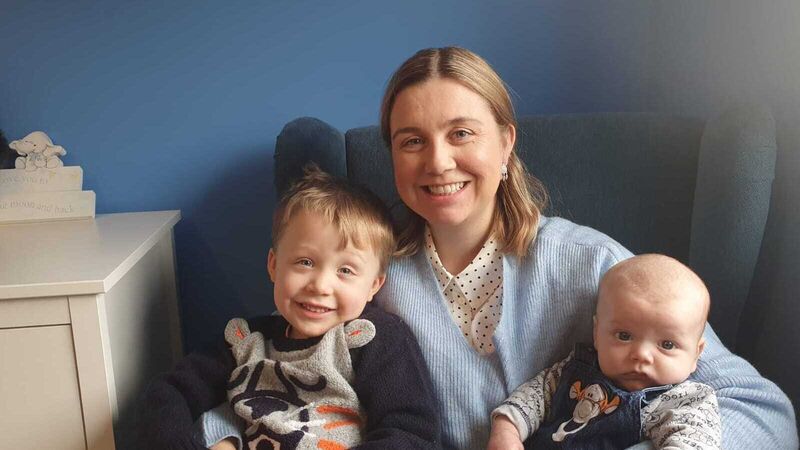Baby on board: Three women share their experience of giving birth during the pandemic

Michelle Groome with sons Oscar and Archie.
When drove into Dublin for her first antenatal appointment at the National Maternity Hospital, she says that the city centre resembled a zombie film. She found out she was expecting her second child at the end of February 2020, when there were whispers about a virus from China. By the time she was 13 weeks’ pregnant, the country was in the grip of our first lockdown.
Archie was born on October 20. Groome’s experience of pregnancy was very different second time round.











